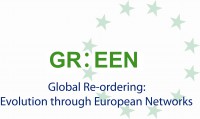Mapping EU Countries' Relationships with Energy Suppliers

The EU is one of the key global energy players, consuming 70.5 million TJ of energy, of which 33.3 million TJ is produced domestically, while an impressive 38 .6 million TJ has to be imported in order for the EU to meet its energy needs. 53 per cent of the Gross Inland Consumption (GIC) of energy in the EU has to be supplied from beyond the EU’s borders, and the level of import dependence is especially high in oil, 85.2 per cent of which has to be imported, and gas, where 62.4 per cent of the domestic consumption has to be supplied from abroad. Of the 28 EU members , Denmark was the sole member state with negative import dependence, producing 9 per cent more energy than it needs to cover its energy needs. At the other end of the EU’s dependence scale is tiny Malta, whose energy important dependence is in fact higher than 100 per cent. This high level of energy import dependence makes the EU vulnerable and exposed to trends and actors beyond the EU’s borders. The question of how to secure energy supply figures therefore high on the political agenda. However, the energy policy of the EU suffers not only from a shortage of domestic energy resources, but also from a lack of policy coordination at the EU level.


